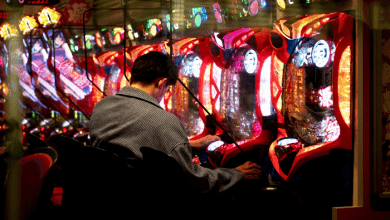
The Science of Luck: Can You Influence Your Wins?
Introduction
Luck, that elusive force that seems to govern the outcomes of our endeavors, has fascinated humanity for centuries. In the realm of gambling, luck plays a significant role, leaving players to wonder if they can somehow influence their wins. While chance and randomness are inherent in many slot online gambling activities, there are also scientific and psychological factors at play. In this blog post, we will delve into the science of luck, exploring the concept of chance, the psychology behind perceived luck, and whether or not we can truly influence our wins in the world of gambling.
Chapter 1: Understanding Probability and Chance
Probability and chance are fundamental concepts in the world of gambling. We’ll explore the basics of probability and how it governs the outcomes of various casino games.
Chapter 2: The Role of Random Number Generators (RNGs)
Random Number Generators (RNGs) are the backbone of fairness in online casino games. We’ll discuss how RNGs work and their influence on the perceived notion of luck.
Chapter 3: The Gambler’s Fallacy
The Gambler’s Fallacy is a common cognitive bias that affects players’ decision-making. We’ll explore this fallacy and how it impacts the perception of luck in gambling.
Chapter 4: The Psychology of Luck
The psychology of luck plays a crucial role in how players perceive their wins and losses. We’ll discuss the psychological factors that influence feelings of luck and superstition.
Chapter 5: Skill vs. Luck in Gambling
In some forms of gambling, skill can influence outcomes to a certain extent. We’ll explore the interplay between skill and luck in various casino games.
Chapter 6: Strategies for Maximizing Wins
While luck is a significant factor, there are strategies that players can employ to enhance their chances of winning. We’ll discuss bankroll management, betting strategies, and understanding odds.
Chapter 7: The Law of Large Numbers
The Law of Large Numbers is a statistical principle that comes into play in gambling. We’ll explain this concept and its implications for long-term outcomes.
Chapter 8: The Influence of Positive Thinking
Positive thinking and optimism can affect a player’s perception of luck. We’ll discuss the impact of mindset on gambling experiences and decision-making.
Chapter 9: Rituals, Superstitions, and Lucky Charms
Rituals, superstitions, and lucky charms are common in the gambling world. We’ll explore why players engage in these practices and their impact on perceived luck.
Chapter 10: Responsible Gambling and Mindful Play
Responsible gambling practices involve being mindful of how luck is perceived and managed. We’ll discuss the importance of setting limits and maintaining self-control.
Conclusion
The science of luck in gambling is a complex interplay of probability, psychology, and personal beliefs. While chance and randomness govern many outcomes, players can enhance their experiences by adopting responsible gambling practices, understanding probability, and employing sound betting strategies.
While we cannot control luck itself, we can influence how we perceive it and how we respond to wins and losses. By embracing a positive mindset, staying informed about the science of probability, and approaching gambling with mindfulness, players can enjoy the thrill of the game while maintaining a healthy balance.
So, as you venture into the world of gambling, remember that while luck may be an unpredictable force, your approach to gambling can greatly impact your overall experience. Embrace the excitement of chance, employ responsible gambling practices, and may your gaming journey be filled with enjoyment, mindfulness, and the thrill of the unknown. Happy gambling and best of luck in all your gaming endeavors!



